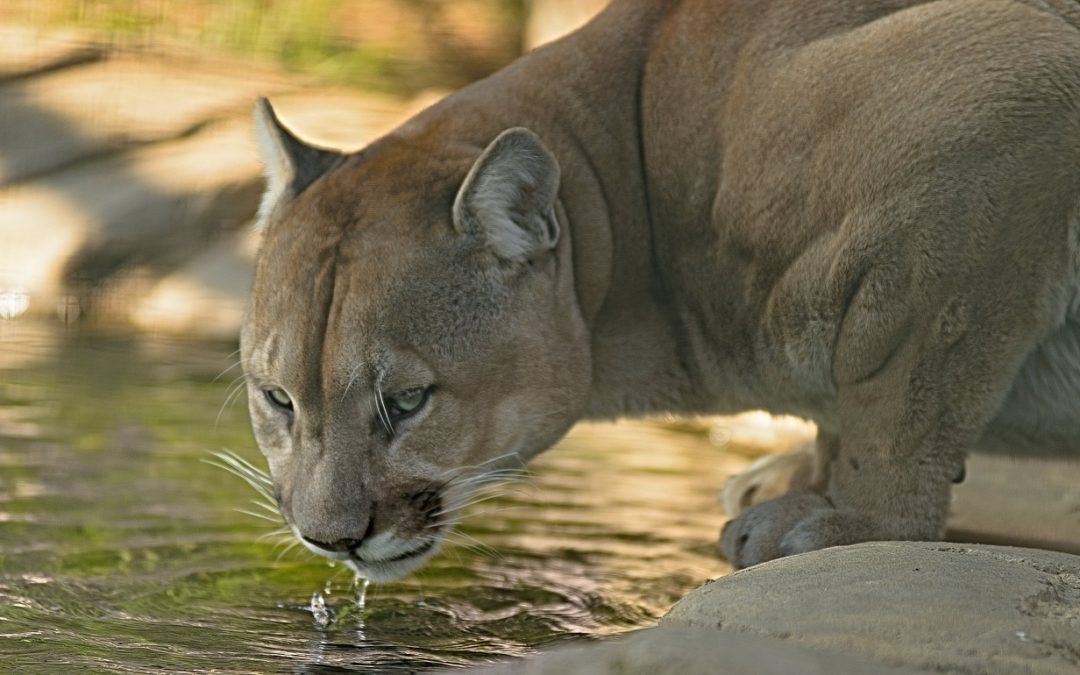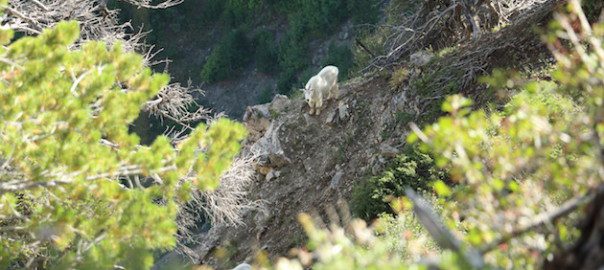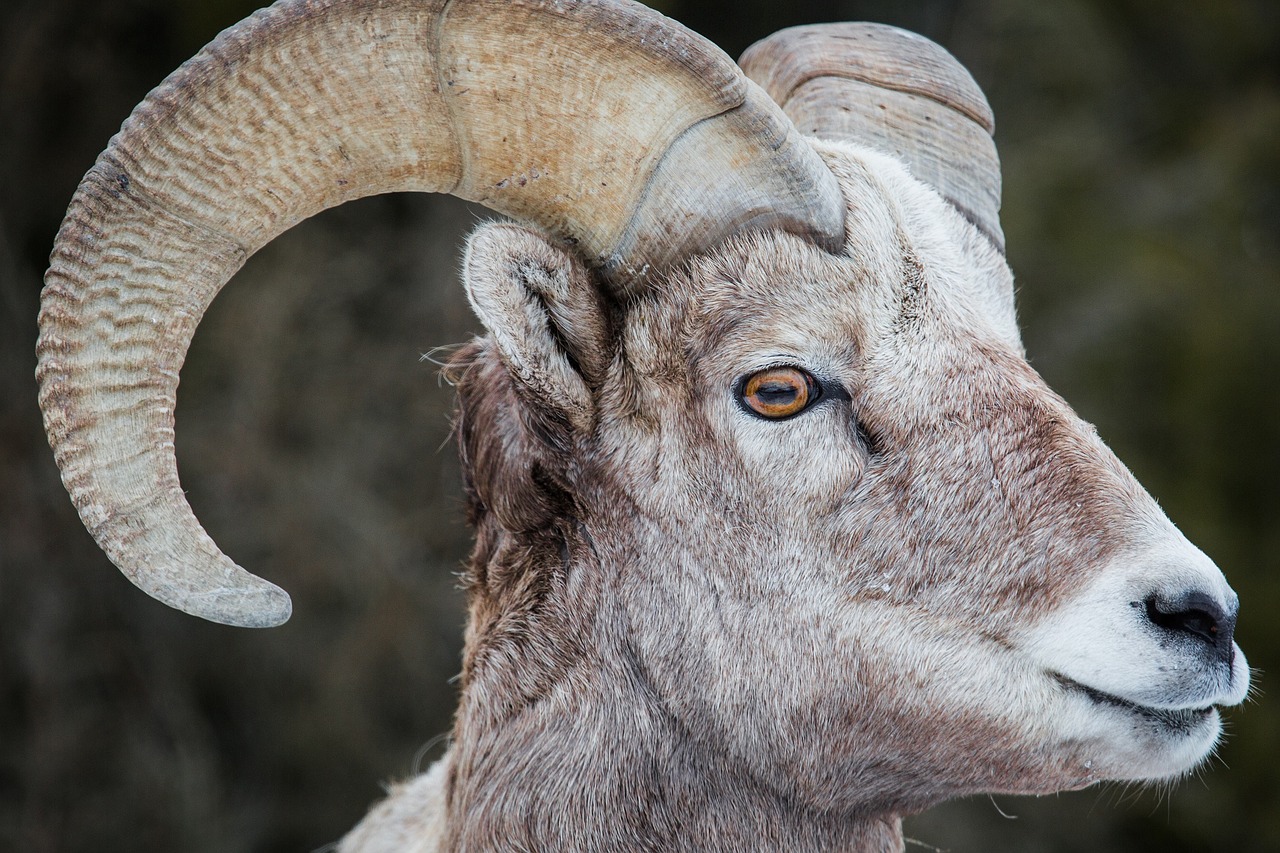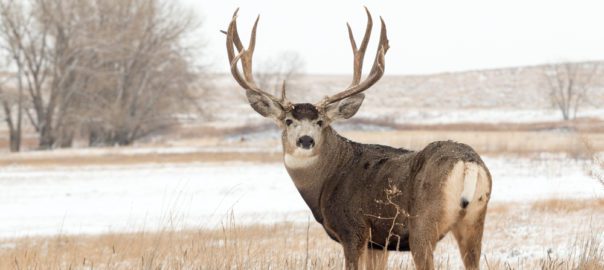Their nocturnal habits and stealthy character make cougars a challenging big game animal to hunt. ODFW wildlife biologists Scott Napoli from the White River Wildlife Area and Herman Biederbeck from the north Coast offer these tips to help you harvest more cougars.
1. Ditch the calendar. Winter, after other big game seasons have closed, is a great time to hunt cougar. Damp, snowy ground can make it easier to track cougar. Also, deer and elk begin to concentrate in lower elevation areas, becoming major attractions to hungry cougars.
2. Scout, locate, document.
Prior to your hunt, spend time in the field scouting for cougar the same way an elk hunter scouts for elk.
Locate cougar sign such as tracks (be sure you know what a cougar track looks like), kills sites (cougars cover their kill and return to it later) and even scent markers (a scrape of leaves and twigs that cougars use to mark their territories with urine and feces).
Document what you find on a map or GPS. As you begin to collect data, you might start seeing patterns in how a cougar travels in their territory.
3. Set up trail cameras on ridgelines and game trails to see what’s happening when you’re not there. Even better, focus on canyon areas, where cats like to spend time.
4. Use good quality calls. Predator calling is the best option for targeting cougars and being successful. But be prepared to spend money on a good call. Consider both the source of the sounds they are recording and the quality of the digital playback.
Don’t overlook using cat calls. Cougars are very territorial and are likely to investigate the sound of another cat in their territory.
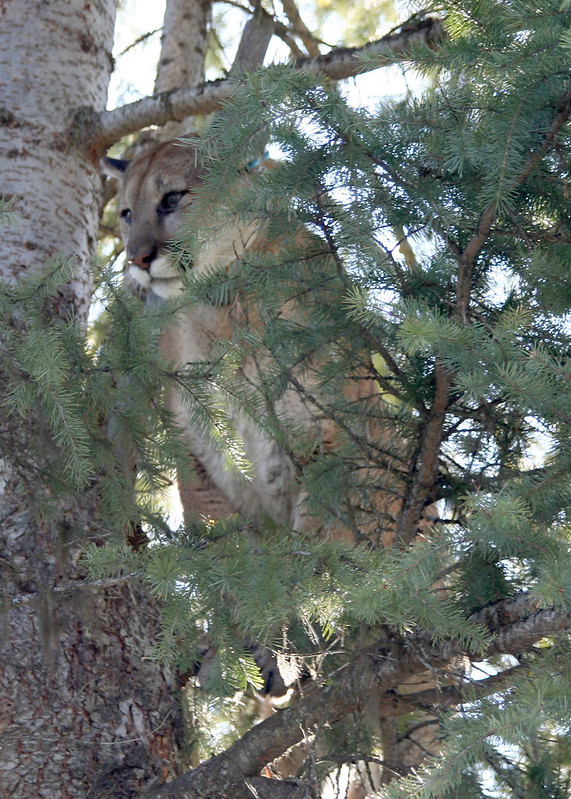
Treed cougar in the Sled Springs Unit, Oregon
5. Call long and hard. Call longer for cats – 45 minutes of continuous calling or more. Twenty minutes of calling now and then may work for some predators such as coyote, but it’s not the way to call cougar.
6. Call safely. Cats are quiet and stealthy – you don’t want one creeping up on you while you’re calling. Here are a couple of techniques to stay safe.
Call while sitting back-to-back with a buddy. You’ll have a 360-degree view around you and will be able to take turns calling as loud and long as you can.
Set up with your back to something like a tall canyon wall that will keep a cougar from creeping up behind you.
Stay still, especially when using mouth calls. Moving may cause a cougar to think you’re the prey.
7. Consider a moving decoy. They became legal in Oregon at the beginning of 2019. Set one up and start calling at a kill site or canyon entrance and watch for cougar.
8. Don’t overlook the details. Sometimes it’s the smallest things that can ruin your hunt.
Be quiet. Once you arrive at your hunting site, try to be as stealthy as the cats you’re hunting. Don’t slam the car doors, keep conversation to minimum, walk slowly and quietly to your calling site, etc.
Manage your scent — cougars have a keen sense of smell. Where possible, set up downwind of the direction from which you expect a cougar to approach, use scent sprays to treat you and your clothes.
Take advantage of shade and cover to make yourself harder for a cat to see.
9. Be ready, even if you aren’t necessarily cougar hunting. Most cougars are seen and taken by deer and elk hunters. Have a cougar tag with so you can take advantage when a cougar opportunity presents itself.
10. Consider cougar for dinner. Most people don’t know how good cougar meat can be, so it’s worth taking the meat home and giving it a try.
 Eat Like a Wildman is a collection of the top rated wild game and fish recipes that Sports Afield magazine has published over the last 110 years. Lifelong food critic and cookbook author, Rebecca Gray selects and infuses a wonderful-tasting standards with her own culinary wizardry and provides instruction on the best methods for preparing fish and wild game to cook. Shop Now
Eat Like a Wildman is a collection of the top rated wild game and fish recipes that Sports Afield magazine has published over the last 110 years. Lifelong food critic and cookbook author, Rebecca Gray selects and infuses a wonderful-tasting standards with her own culinary wizardry and provides instruction on the best methods for preparing fish and wild game to cook. Shop Now
